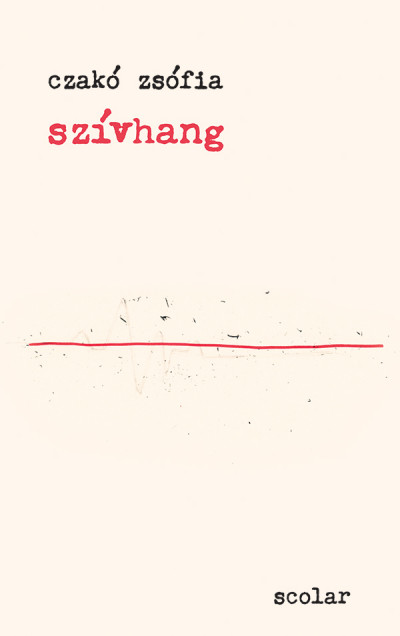
(excerpt)
On the first floor, I waited among big-bellied Gypsy girls while Lajos bought water from a vending machine, as Doctor Gábor had told him to do. When I looked down the corridor, I saw that none of the women had husbands, none of them had anyone accompanying them at all, I was the only one in such a privileged position, only I had a husband who enthusiastically hovered around me, then took a solemn seat next to me and asked what else he could bring. I stroked my belly. No visible sign of any pregnancy yet, but sitting in front of an ultrasound room, I felt entitled to this theatrical gesture. A rude woman suddenly threw open the door and called out names, five names, including mine. I jumped up and got ahead of three of the other girls, and then I had to wait in a tiny dressing room for the examination.
A fat Gypsy girl went in first. We could hear the baby’s heartbeat from the dressing room. I got excited, incredibly excited. This is really happening. And it’s happening to me, to me and my husband, my love, my best friend, the one I chose and am happy with. Thirty-three years old, no cramps, no fears, everything at the right time, maybe a tad late, but I’m here now, and I adore Lajos, and soon I will hear our child’s heartbeat. In a moment or two. Too bad he can’t come in with me, because I have to go now, they’re calling me. I get goose bumps when I lie down on the bed. It’s going to be a bit cold, the doctor doing the exam said, and then she put the gel on my belly, the gel that I’d only seen on pregnant women’s bellies in hospital shows when they go in for an ultrasound. The doctor, who I thought was quite nice and pretty, was sitting on my right, and I followed her gaze to the monitor. Good lord. I saw
darkness and tiny white islands. The room was silent. I smiled and looked expectantly at the grayish-black spots, the woman’s face, her beautiful blonde hair, her brown eyes, her hands, her wedding ring, my stomach, the machine. Which little island was my child on the black and white flickering screen, in my womb. I’d had several gynecologists tell me before during a vaginal ultrasound what I should be looking at, where my ovaries are, how thick the back wall of my uterus is, and how strangely large it all is. But I never actually knew what was what on that blotchy screen. I just waited to be told everything was fine, you can get dressed. Now for the first time I concentrated, for the first time I wanted to see my womb, to understand it, because now, for the first time, I would see my child, our child, something of this child, an early version, something alive. I vowed to give my pussy a good look when I got home. Réka and her fancy friends in the capital had told me that it was important so many times. To make a connection with my genitals, they said, and I had said right, right, but I hadn’t cared, but now, with the ultrasound scanner looking at my uterus, everything seemed important. I had to prepare for pregnancy, I had to take everything they said seriously, even if it was nonsense, I had to get to know my you-know-what up close, we had to become friends, like the pea and the pod, I’ll get a mirror, spread my legs, and we’ll talk, I’ll tell it stories, and it will tell me that I have to push my child out here, or rather there. I’ll be focused and strong, because I’m responsible for someone other than myself now, we’ll be a family, we’ll have a child. Is it a boy or a girl?
“So, am I pregnant?” I jokingly asked the doctor, who hadn’t said a word in the meantime. I smiled at her to show her what a nice, sweet person I am, because as the slow and silent seconds passed, I was beginning to fear her. I was scared of her silence, her furrowed brow, and I felt the room getting colder, my arms were cold, though the summer heat outside was sweltering, but she was still moving the head of the ultrasound and staring at the screen. She had had her hand on the instrument for so long that it seemed as if an arm had grown out of my belly. I had to pee because of the pressure, and I no longer saw her as kind and beautiful, no longer blonde or brown-eyed, because her head and face had disappeared from the room, only the ultrasound remained, the blackness, the emptiness and the silence, and then I spoke again, quietly, much more quietly than before. I asked her to say something. It was a surprising voice, my own voice, which I hardly recognized, because it had lost all determination, it was the voice of someone I had never met before, a thin, tinkling voice, fearful and lost. She took the head of the ultrasound off my stomach and the monitor went black. I heard her speak.
“There’s no heartbeat.”
Translated by Thomas Cooper
